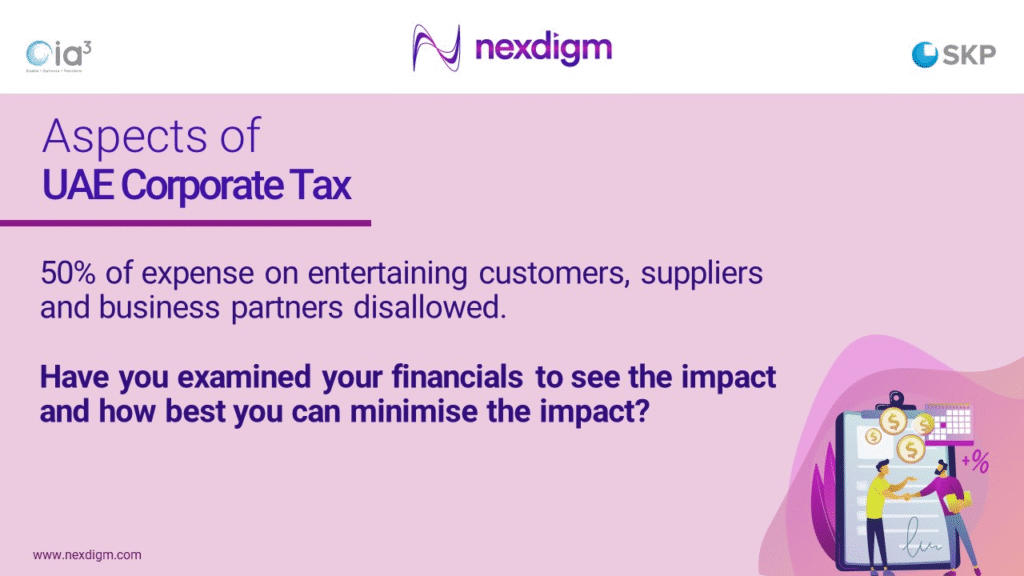Now Reading: How Corporate Tax Impacts Real Estate Companies in Abu Dhabi in 2025
-
01
How Corporate Tax Impacts Real Estate Companies in Abu Dhabi in 2025
How Corporate Tax Impacts Real Estate Companies in Abu Dhabi in 2025

Table of Contents
In 2025, Abu Dhabi’s AED 90 billion real estate market, with 8,700 transactions in Q1 (Bayut), is navigating the UAE’s federal corporate tax regime, introduced on June 1, 2023, at a 9% rate for businesses with taxable income above AED 375,000. This tax significantly affects real estate companies, influencing profitability, investment strategies, and compliance costs in a market known for high yields (5–7%) and tax-free personal gains.
Tailored to your interest in UAE property trends, blockchain, smart homes, off-plan investments, and prior queries on taxes, depreciation, residency, and capital gains tax (CGT), this guide details the corporate tax’s impact on Abu Dhabi real estate companies, integrating insights from the Federal Tax Authority (FTA), Department of Municipalities and Transport (DMT), PwC, gulfnews.com, and X sentiment.
- Market Context: Abu Dhabi’s AED 90B real estate market in 2024, 8,700 Q1 2025 transactions, per Bayut. UAE’s 9% corporate tax, effective June 1, 2023, applies to real estate companies with taxable income >AED 375,000, per FTA.
- Focus: Analyzes how corporate tax affects Abu Dhabi real estate companies’ profitability, operations, investment strategies, and compliance, with free zone exemptions and mitigation strategies.
- Relevance: Aligns with your interest in UAE property trends, blockchain, smart homes, off-plan investments, and queries on taxes, depreciation, residency visas, and CGT minimization.
- Sources: FTA, DMT, PwC, Bayut, Property Finder, rpalace.ae, gulfnews.com, alaan.com, and X sentiment.
UAE Corporate Tax Framework

- Rate: 9% on taxable income exceeding AED 375,000 for mainland and free zone businesses, per Federal Decree-Law No. 47 of 2022.
- Applicability: Applies to real estate companies (developers, property managers, brokers, REITs) registered as juridical persons in Abu Dhabi, excluding individuals holding properties personally.
- Taxable Income: Net profit after allowable deductions (e.g., operating costs, depreciation, interest), per FTA.
- Exemptions:
- Qualifying Free Zone Persons (QFZPs) face 0% tax on qualifying income.
- Real Estate Investment Trusts (REITs) are exempt if distributing ≥80% of profits, per Ministry of Finance (April 2025).
- Compliance: Mandatory tax registration, quarterly filings, and 5-year record-keeping, with penalties up to AED 50,000, per alaan.com.
Impacts of Corporate Tax on Real Estate Companies in Abu Dhabi

1. Reduced Profitability
- Impact: The 9% tax reduces net profits for companies with taxable income >AED 375,000, affecting dividends and reinvestment capacity.
- Example: A developer like Aldar Properties with AED 10M taxable income (e.g., from Saadiyat Island projects) pays AED 900K tax, reducing net profit from AED 10M to AED 9.1M.
- Quantitative Effect: For a company with AED 5M profit, tax liability of AED 450K cuts ROI by 0.5–1% on AED 50M projects, per PwC.
- Mitigation:
- Maximize deductions (e.g., depreciation at 4–5% for buildings, interest on loans).
- Structure as a QFZP in free zones like ADGM or KIZAD for 0% tax on qualifying income.
- Example: A KIZAD-based developer leasing to free zone entities avoids AED 450K tax on AED 5M profit.
2. Increased Operational Costs
- Compliance Costs:
- Registration and Filing: AED 5K–20K/year for tax registration and quarterly filings, per alaan.com.
- Accounting Systems: AED 10K–50K/year for ERP software or consultants (e.g., PwC, Finanshels).
- Audits: AED 20K–100K/year for mandatory audits if revenue >AED 50M, per FTA.
- Penalties: Fines of AED 1,000–50,000 for late filings or non-compliance, per cleartax.com.
- Example: A mid-sized property manager with AED 20M revenue incurs AED 50K–100K/year in compliance costs, reducing net margins by 0.25–0.5%.
- Mitigation:
- Use automated platforms like Alaan (AED 1K–5K/year) for tax tracking.
- Outsource to firms like Finanshels for AED 499–5,000/year filing.
3. Impact on Pricing and Market Dynamics
- Price Adjustments: Companies may pass tax costs to buyers or tenants, increasing property prices or rents by 1–3%, per gulfnews.com.
- Example: A AED 2M Al Reem Island apartment’s off-plan price rises by AED 20K–60K to offset AED 180K tax on AED 2M developer profit.
- Market Effect: Could slow demand in oversupplied areas (e.g., 8,700 new units in 2025, per Bayut), but high-demand zones like Saadiyat Island remain resilient.
- Service Charges: Property managers may raise fees (AED 15–60/m²/year) by 5–10% to cover tax, per Property Finder.
- Mitigation:
- Absorb tax costs in high-yield areas (5–7%) to maintain competitiveness.
- Offer flexible payment plans (e.g., Aldar’s 60/40 post-handover) to offset price hikes.
4. Free Zone Advantages and Limitations
- Benefit: QFZPs in free zones (ADGM, KIZAD, Masdar City) pay 0% tax on qualifying income (e.g., commercial leases to free zone entities), per PwC.
- Example: An ADGM-based developer with AED 5M profit from leasing to free zone tenants pays no tax, saving AED 450K vs. mainland.
- Limitations:
- Non-qualifying income (e.g., residential sales to individuals) taxed at 9%.
- Substance requirements (employees, assets, AED 50K–200K/year costs) increase overheads.
- Example: A KIZAD company leasing to mainland tenants pays AED 180K tax on AED 2M profit, plus AED 100K compliance costs.
- Mitigation:
- Base operations in free zones, ensure qualifying income dominates revenue.
- Partner with free zone entities to maximize tax-exempt transactions.
5. REIT-Specific Exemptions
- Rule: REITs distributing ≥80% of profits annually are exempt from 9% corporate tax, per Ministry of Finance (April 2025).
- Impact: Enhances dividend yields (6–8%), making REITs like Emirates REIT attractive for institutional investors.
- Example: A REIT with AED 10M profit distributes AED 8M tax-free, saving AED 900K tax, boosting yields by 0.9%.
- Mitigation: Structure real estate portfolios as REITs, register with DLD or DFM for tax relief and reduced transfer fees (2% vs. 4%).
6. VAT Interactions
- Rule: Corporate tax applies after VAT (5%) on taxable supplies (e.g., commercial leases, services), with input VAT recoverable for registered businesses, per FTA.
- Impact:
- Increases cash flow burden for unregistered companies (e.g., AED 25K VAT on AED 500K commercial lease, non-recoverable).
- Registered companies recover input VAT, offsetting tax costs.
- Example: A property manager charges AED 1M for services, collects AED 50K VAT, pays AED 90K corporate tax on AED 1M profit, but recovers AED 50K input VAT on expenses.
- Mitigation:
- Register for VAT if taxable supplies >AED 375,000/year (AED 2K–5K cost).
- Structure residential sales as zero-rated (0% VAT) to reduce tax base.
7. Depreciation and Deductions
- Benefit: Real estate companies can deduct depreciation (4–5% for buildings, 10–20% for fixtures), interest, and operating costs, reducing taxable income, per FTA.
- Example: A AED 50M Saadiyat Island project depreciates at 4% (AED 2M/year), reducing taxable income by AED 2M, saving AED 180K tax/year.
- Impact: Lowers tax liability by 20–30% for capital-intensive developers, per PwC.
- Mitigation:
- Maximize depreciation schedules (consult advisors like PwC).
- Capitalize interest on development loans (e.g., 4% on AED 20M loan = AED 800K deduction).
8. Home Country Tax Implications
- Challenge: Multinational real estate companies face home country taxes (15–30%) on repatriated profits, per OECD.
- Example: A US-based developer with AED 5M Abu Dhabi profit pays AED 450K UAE corporate tax, then 21% US tax (AED 945K) on AED 4.55M, mitigated by foreign tax credits.
- Mitigation:
- Use UAE’s 140+ DTAs to claim credits or exemptions.
- Retain profits in UAE for reinvestment, deferring home country tax.
Financial Snapshot
- Revenue Range: AED 5M–500M (small brokers to large developers like Aldar).
- Tax Liability:
- 9% on taxable income >AED 375,000 (AED 450K–45M on AED 5M–500M profit).
- 0% for QFZPs or REITs meeting conditions.
- Compliance Costs: AED 35K–170K/year (registration, filing, audits).
- Initial Costs (Property Transactions):
- Transfer Fee: 2% (AED 20K–1M, split).
- AML/KYC: AED 5K–20K.
- VAT on Services: 5% (AED 1K–50K).
- Ongoing Costs:
- Service Fees: AED 10K–50K/year.
- White Land Tax (if applicable): 1–4% (AED 10K–200K/year).
- Returns:
- Yields: 5–7% (AED 50K–3.5M/year on AED 1M–50M).
- Appreciation: 3–6% (AED 30K–3M/year).
- Net Impact: 1–2% ROI reduction for mainland companies, negligible for QFZPs/REITs.
Strategic Considerations
- Free Zone Operations:
- Why: 0% tax for QFZPs boosts ROI by 1–2%.
- Example: AED 5M KIZAD profit avoids AED 450K tax.
- Action: Register in ADGM/KIZAD, ensure qualifying income.
- REIT Structures:
- Why: Tax exemption and 6–8% yields.
- Example: AED 10M REIT profit distributes AED 8M tax-free.
- Action: List on DFM, meet 80% distribution rule.
- Cost Optimization:
- Why: Deductions reduce tax by 20–30%.
- Example: AED 2M depreciation saves AED 180K tax.
- Action: Maximize depreciation, capitalize interest.
- Pricing Strategy:
- Why: Passing tax costs (1–3%) maintains margins.
- Example: AED 2M apartment price rises AED 20K–60K.
- Action: Offer payment plans, target high-demand areas (Saadiyat).
- Compliance Efficiency:
- Why: Avoids AED 1,000–50,000 fines.
- Example: Late filing costs AED 10K.
- Action: Use Alaan or Finanshels, retain records 5 years.
Challenges and Mitigations
- Profit Margin Pressure:
- Challenge: 9% tax cuts ROI by 1–2%, per PwC.
- Mitigation: Operate as QFZP, maximize deductions.
- Compliance Burden:
- Challenge: AED 35K–170K/year costs, fines up to AED 50,000.
- Mitigation: Automate via Alaan, outsource to Finanshels.
- Home Country Taxes:
- Challenge: 15–30% on repatriated profits, per OECD.
- Mitigation: Use DTAs, reinvest in UAE.
- Oversupply Risk:
- Challenge: 8,700 new units in 2025 may reduce yields by 1–2%, per Bayut.
- Mitigation: Focus on Saadiyat, Al Reem; diversify into REITs.
Recommendations for 2025
- Developers (AED 50M+ Projects):
- Action: Base in KIZAD/ADGM, target commercial projects for 0% tax.
- Example: AED 50M KIZAD logistics hub saves AED 4.5M tax.
- Property Managers (AED 5M–20M Revenue):
- Action: Register for VAT, recover input tax, automate compliance.
- Example: AED 10M revenue firm saves AED 50K VAT, reduces AED 20K compliance costs.
- REIT Operators:
- Action: Distribute ≥80% profits, list on DFM for tax exemption.
- Example: AED 10M REIT yields AED 8M dividends, tax-free.
- Sustainability Focus:
- Action: Develop smart properties in Masdar City, claim depreciation.
- Example: AED 20M project saves AED 80K/year utilities, AED 180K tax.
- Tax Planning:
- Action: Use DTAs, retain profits in UAE, hold assets personally for individuals.
- Example: US firm credits AED 450K UAE tax against 21% US tax.
- Due Diligence:
- Action: Verify QFZP status with FZA, use DMT’s portal, engage DFSA brokers.
- Example: AED 5M KIZAD project confirmed, no tax liability.
X Sentiment
- X posts note corporate tax’s “9% bite” on Abu Dhabi developers, with concerns about compliance costs (AED 35K–170K/year).
- Optimism persists for QFZPs and REITs, with @RadarHits praising ADGM’s 0% tax for “game-changing ROI,” per X discussions.
Conclusion
In 2025, the UAE’s 9% corporate tax, effective since June 2023, reduces profitability for Abu Dhabi real estate companies by 1–2% (e.g., AED 450K on AED 5M profit), increases compliance costs (AED 35K–170K/year), and may raise prices by 1–3% in the AED 90B market. Free zone companies (ADGM, KIZAD) as QFZPs enjoy 0% tax on qualifying income, saving AED 180K–4.5M, while REITs distributing ≥80% profits avoid tax entirely.
Maximizing deductions (4–5% depreciation), recovering VAT, and using DTAs mitigate impacts, maintaining 5–7% yields and 3–6% appreciation. Challenges include compliance burdens, home country taxes (15–30%), and oversupply risks (8,700 units). By operating in free zones, structuring as REITs, automating compliance, and targeting high-demand areas like Saadiyat, companies can optimize returns, aligning with your interest in Abu Dhabi’s dynamic real estate landscape. watch more here
read more here: Real Estate Tax Benefits in Abu Dhabi Free Zones






















